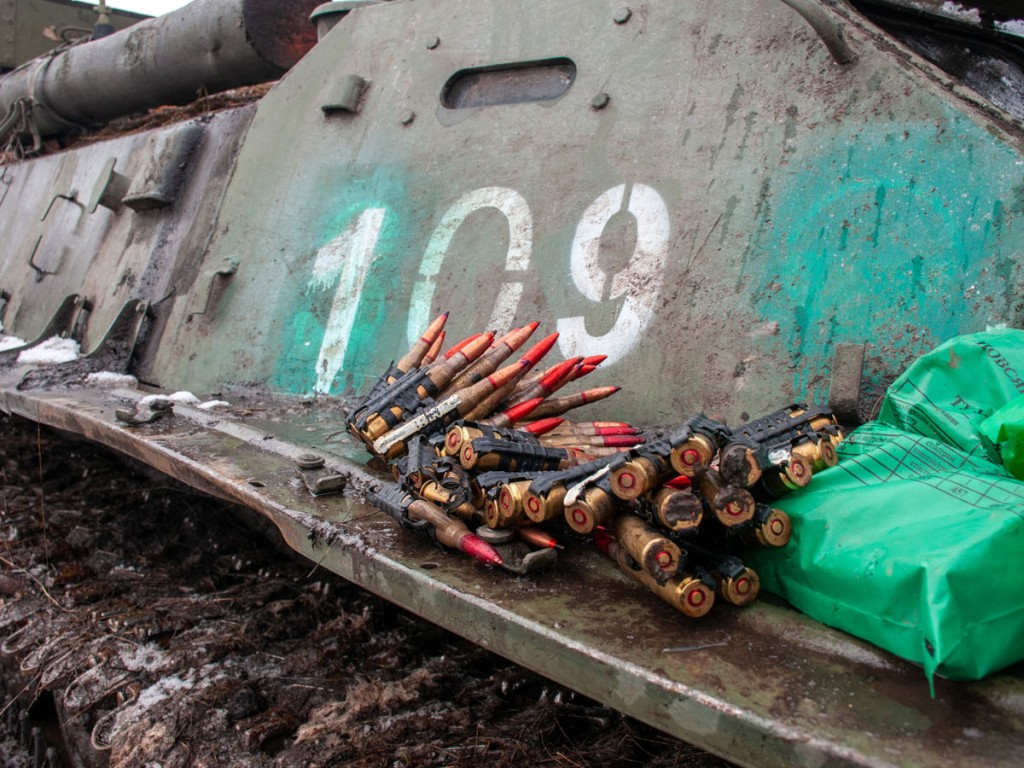Its likely disruptions will last well beyond the duration of the current conflict
At a moment of trouble for global supply chains, the invasion of Ukraine by Russian forces on February 22 made matters that much worse. The war, almost from its inception, caught many commodity trades and markets in its crosshairs—including those involving several crucial metals.
Western sanctions on Russia in the wake of the invasion were meant to hobble the Russian economy and to punish Russian President Vladimir Putin and his cronies. Formally, “the sanctions have more to do with the flow of products, capital, and information going into Russia and not as much on things leaving Russia,” noted Jackson Wood, Director of Industry Strategy, Global Trade Intelligence, at Descartes, a provider of trade, logistics, and supply-chain information services.
But many of Descartes’ customers “are taking a pretty conservative approach,” said Wood. “They are looking at all their activities even tangentially related to Russia, including in Belarus and some of the other surrounding countries. Organizations moving products of Russian origin see friction associated with those moves going forward.”
The extractive industries, he added, will be especially hard hit, “because it is so big a part of the economy in that region.” Companies contemplating buying ore or finished metal of Russian origin now carry a significantly heavier due diligence burden in order to “ascertain the ownership structures” of the selling organizations, to make sure that no sanctioned parties are involved.

Scrambling to Make Up Shortfalls
On the Ukrainian side, Russia failed to gain control of the Ukrainian port of Mariupol, on the Sea of Azov, during the first days of the war, but, during the second week, surrounded and bombarded the city, shutting it down. Russian naval forces also control the narrow Kerch Strait which connects the Sea of Azov to the Black Sea, all of which jeopardizes Ukraine’s sizable exports of steel, iron ore, and pig iron through Mariupol. During the second week of the war, Russian forces took control of the Black Sea port of Kherson, 125 miles east of Odessa, another major port.
Steel shipments from Mariupol have represented 25% of Ukraine’s exports in recent years, according to S&P Global. Ukraine’s Metinvest, a mining and steel group, suspended production at two steel plants in Mariupol at the war’s outset, sending steelmakers in the U.S., Turkey, Egypt, and the European Union scrambling for other sources of raw materials.
Lower raw materials availability and higher prices could jeopardize plans to produce more steel in the United States. Domestic steelmakers were set to increase their melting capacity in 2022 by 7%, requiring larger supplies of raw materials which may not be forthcoming.
Russia and Ukraine combined have supplied over 60% of pig iron imports to U.S. steel producers since 2018. Other potential pig iron sources include Brazil, which made up 20% of imports since 2018, according to Argus Media, a provider of commodities data, but Brazil’s pig iron is higher in phosphorous, making it less desirable. The Canadian steelmaker Stelco recently added one-million tons per year of pig iron capacity at its Hamilton, Ontario, mill.
Some U.S. steelmakers could also replace pig iron as a raw material with direct reduced iron (DRI) and hot briquetted iron (HBI). Nucor and Steel Dynamics operate their own DRI plants, and Cleveland-Cliffs and Voestalpine have each added HBI production capacity in recent years, although, in the case of Voestalpine’s HBI plant in Corpus Christi, much of the output is designated for its mill in Austria. Also, as the Argus report indicates, “not all mills are set up to consume DRI and HBI in larger volumes.”
Other Metals
Other metals supply chains are also threatened by the Ukraine conflict. Titanium producers are located on both sides of the Russo-Ukrainian border. Russia’s VSMPO-Avisma is the world’s largest producer of titanium sponges, a product refined from titanium ore, which is used heavily in aerospace and electronics. Airbus and Boeing are both reportedly reliant on VSMPO.
Ukraine was a major supplier to VSMPO of ilmenite, a titanium ore until President Volodymyr Zelensky banned its export to Russia as its military forces massed along Ukraine’s border before the invasion. VSMPO is now reportedly scouring world markets for titanium scrap.
Russia produces 7% of the global total of nickel and exports high-grade nickel to Europe and China for use in electric vehicles. Tight supplies of nickel were seen even before the Russia-Ukraine crisis hit, as China ramped up EV and stainless steel production. Nickel contracts on the London Metal Exchange jumped over 25% since the Russia-Ukraine crisis intensified, over fears of supply disruptions, and around 12% in February. Prices for palladium, which is used in vehicle catalytic converters, also jumped as Russian forces invaded Ukraine.
Worries about aluminum supplies from Russia propelled prices of that metal by over 23% in February to record highs. The Russian company Rusal, the world’s largest aluminum producer outside of China, produced 3.8 million tons of aluminum in 2021, about 6% of world production.
Regardless of the outcome of the Russo-Ukrainian war, the implications for regional metals supply chains will be severe. Failing to win a swift victory, thanks to impressive Ukrainian resistance and their own incompetence, Russian forces turned to inflict significant physical and economic damage to Ukrainian cities and infrastructure with rocket fire. Regardless of the war’s duration, it’s apparent that the western sanctions on Russia will remain in place for some time.
That means, according to Descartes’ Wood, that the compliance burdens of companies doing business in that part of the world will only increase. “It’s fair to assume,” he said, “that there will be additional government action,” regardless of the outcome of the war.










